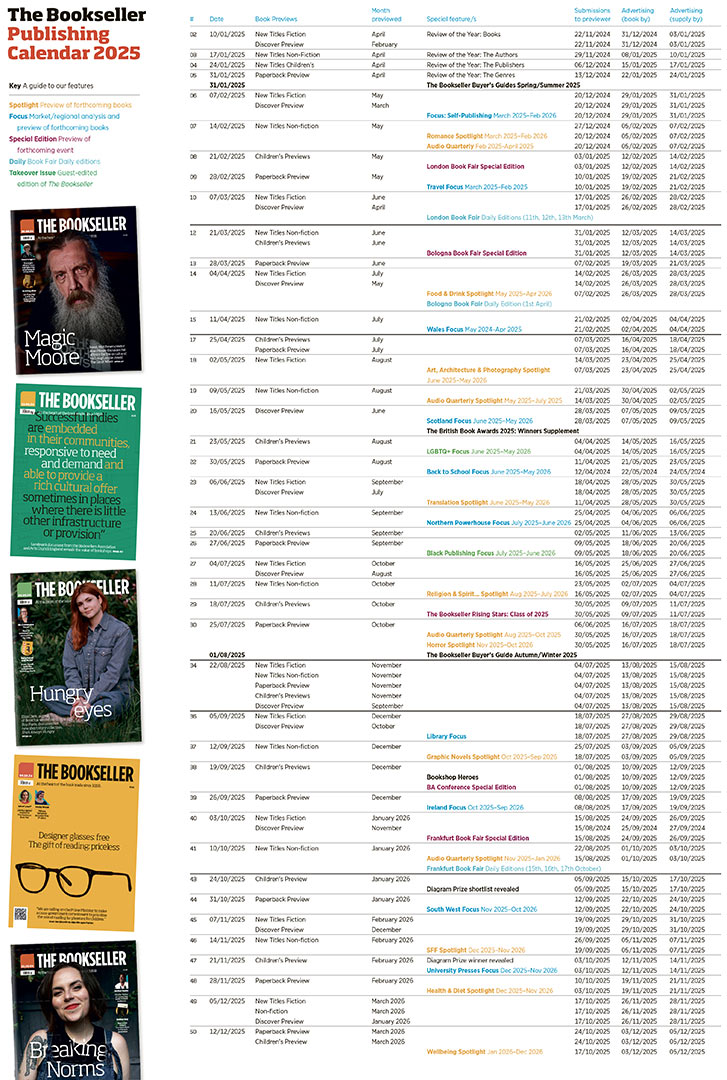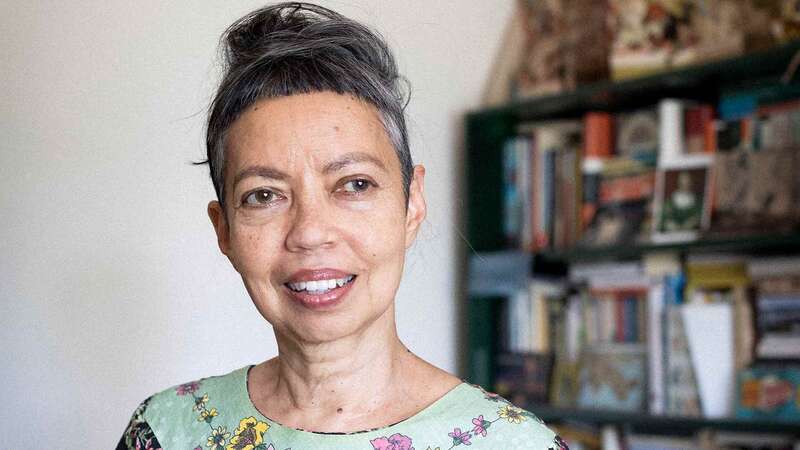You are viewing your 1 free article this month. Login to read more articles.
David Harewood | 'As a Black British man I believe it is vital that I tell this story'
 Caroline Sanderson
Caroline SandersonCaroline Sanderson is a non-fiction writer, editor and books journalist. Her books include a travel narrative, A Rambling Fancy: in the F ...more
David Harewood reveals the impact racism had on his mental health and how he beat the odds to become an acclaimed actor

Caroline Sanderson is a non-fiction writer, editor and books journalist. Her books include a travel narrative, A Rambling Fancy: in the F ...more
"As a Black British man I believe it is vital that I tell this story. It may be just a single account from one person of colour, but my hope is that it may be enough to change some opinions or, more importantly, stop someone else from spinning completely out of control.”
Thirty years ago, stage and screen actor David Harewood—perhaps best known for his roles in Golden Globe-winning drama “Homeland” and latterly in superhero TV series “Supergirl”—suffered a psychotic episode, and was sectioned under the Mental Health Act. Only in recent years has he begun to try and understand the reasons why. Two years ago, he fronted a BBC documentary, “Psychosis and Me”, later nominated for a Bafta, in which he retraced the events leading up to his breakdown, in a bid to dispel some of the stigma surrounding psychosis; a condition which, according to the Royal College of Psychiatrists, affects one in 100 people in the UK at some point in their lives. Research also shows that Black British men are 10 times more likely than white men to be diagnosed with a psychotic illness.
In the film, Harewood relives the moment when he was physically restrained by six police officers before being sectioned, and it’s clear his story could so easily have taken a devastatingly different turn: one cannot help thinking of Dalian Atkinson, for example. Happily, with professional care and the support of friends and family, Harewood recovered and went on to build his acclaimed career, which among other accolades has earned him an MBE for services to acting.
“Psychosis & Me” is both compelling and deeply moving. But it tells only part of Harewood’s story. Now in his first book, Maybe I Don’t Belong Here: A Memoir of Race, Identity, Breakdown and Recovery, he takes us back to his early childhood as he delves deeper into the root causes of his psychosis, in particular the racism and othering he experienced in his formative years, and his consequent desperate desire to belong as he struggled to knit his Black and British identities together.
When Harewood and I speak via Zoom—he is in Vancouver, the city where “Supergirl” is filmed—he tells me how vulnerable he felt after making the documentary. “Until I did the film, it was all just a vague memory, but when I revisited what happened, and realised just how ill I was and how shattered I was, I felt very exposed.” He retrieved the hospital notes which documented his breakdown, but felt unable to go through with being filmed reading them, as had been planned. “The minute I opened the envelope, I was terrified. The first thing I read was something I’d shouted while I was psychotic: ‘I have to save the Black boy!’”
A space to create
Broadcast of the documentary prompted approaches for Harewood to write a book, but he felt “too shattered” to take it on. Fast forward a year or so to the first lockdown, and the courage finally came to read his hospital notes. “God it was tough to read that stuff, and at the time I wanted to get as far away from the subject as possible.” Then came the murder of George Floyd and the Black Lives Matter protests, and the idea of writing a book about how his fractured sense of race and identity had contributed to his breakdown began to crystallise. He teamed up with agent Natalie Jerome, who further encouraged him, and when, owing to the pandemic, he found himself back in London for the longest period in a decade, he made a start, writing the whole book in around five months.
Maybe I Don’t Belong Here—acquired by Bluebird after a heated 14-way publisher auction—takes us back to what was, on the face of it, a happy 1960s and ’70s childhood in Birmingham. Brought up by parents who had moved to the UK in the late 1950s from Barbados, he describes playing football, being taken on day trips to the seaside, evenings of watching classic British sitcoms. “Some of my happiest early memories are there, sitting alongside my family in front of the telly, watching the shows. That was where I first fell in love with idea of performing,” he writes. At school “this tall Black kid” became the class clown. “I was always messing around and laughing,” he tells me.
It’s clear, however, that the clowning was a shield to protect this Black boy with a troubled heart and mind. In the book, he describes how at the age of seven, a stranger in the street told him to “Get the fuck out of my country, you little Black bastard”. “And that’s when it happened, the two halves of me split, there was now a Black half and an English half. I could feel myself slowly coming apart. At times in my life I’ve been able to fuse these two halves together, but occasionally the gap between them is just too big and I struggle. How can I be English when much of England refuses to accept my Blackness and makes it clear that I am not welcome?”
After leaving school, Harewood won a place at RADA and thoroughly enjoyed his time there, honing his craft and finding “his groove”. It was after he left, and entered the acting world proper, that things really began to unravel. While he was relatively successful finding theatre work, he began to feel confined and typecast. “At RADA I’d always just been an actor. Now my colour was the defining factor in reviews and articles... the white space was dismissing me and robbing me of any individuality and personality”, he writes. After seeing him play the title role in “Romeo & Juliet”, one reviewer wrote: “Looked more like Mike Tyson than Romeo.” It was one of the last reviews before his breakdown. In the book, he reflects: “That’s the dangerous thing about being a Black person in a white space, it works at a much deeper, unconscious level and it makes you feel as though everything you’re taking in is normal—until it isn’t.”
Following his breakdown, Harewood resumed his acting career, but his frustration with the quality of the screen roles he was being offered continued. “They were so two-dimensional: the parts that would allow me to really do something with my talent just weren’t there,” he tells me. It was only when he went to America that he was able to audition for roles that really challenged and stretched him, and where his Blackness was immaterial.
“When I started going to auditions in LA, I’d see this big piece of paper which said: ‘Please send more actors of colour, please send more ethnic minorities. This part is open to all.’ And I thought, ‘Wow: here I can do anything, I can play anybody.’ That, for me, was so exciting.”
Harewood is an animated and forthcoming interviewee. Our conversation takes in everything from voter suppression in America and what he dubs the “national harrumphing” in the UK at the casting of Black actor Jodie Turner-Smith as Anne Boleyn; to the recent booing of the England football team for their continued commitment to taking the knee before matches. “What a headfuck it must be as a Black England player to hear your own fans booing you. I don’t think people understand the psychological weight that sits on these players, that sits on people who are remorselessly attacked in our society. Racists put me in a mental institution.”
Book extract
When I was seven years old, matters became irrevocably clear. It was an incident I’ll never forget for it created a rupture that lasts until this very day. Playing alone outside my house one day, I noticed an older, white gentleman walking towards me from across the road. He wasn’t charging at me so I didn’t feel danger, but I could tell it was a purposeful walk. I stopped what I was doing and watched as he got closer. When he was finally within arm’s length, his face a picture of hatred and anger, he leaned in towards me and said: ‘Get the fuck out of my country, you little Black bastard!’
I was shocked and rooted to the spot. He glared at me for a moment, before slowly turning and walking away. I watched as he strode off, working out what he had just said to me. “His” country? Was it not mine too? Perhaps it wasn’t? I was piecing it together, my imaginary game now over, replaced by more serious thought. Maybe I don’t belong here?









